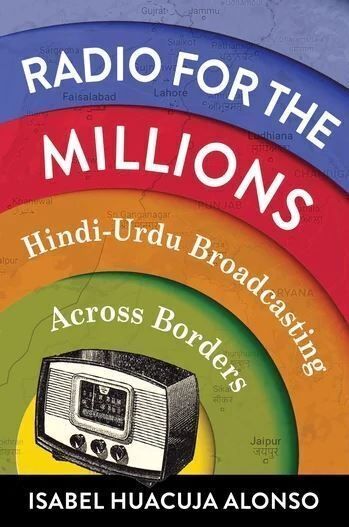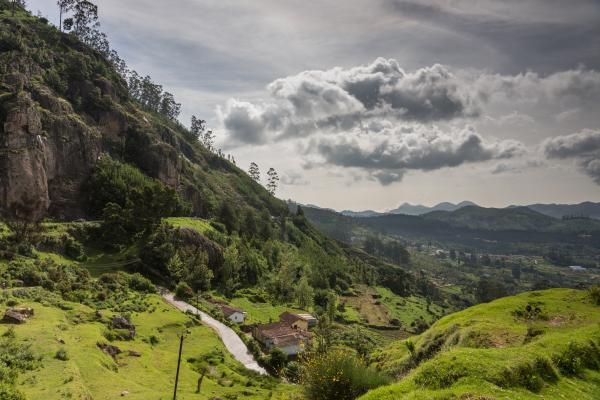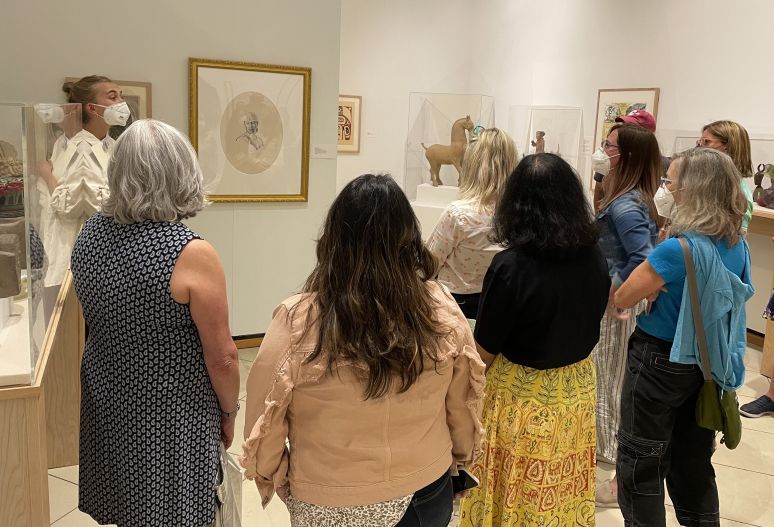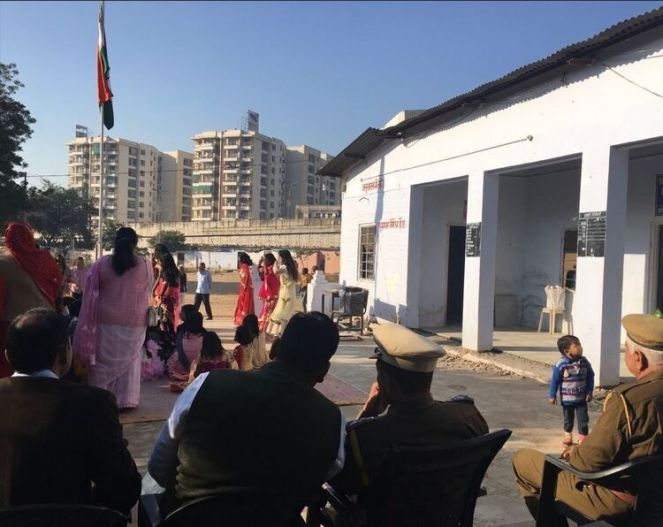South Asia Program
100 Years of Economic Development Conference

September 17, 2022
12:00 am
Cornell University
View and download the final conference program here.
After some stops and starts due to the pandemic, 100 Years of Economic Development will be held at Cornell University in Ithaca, NY, from September 15-17.
From the end of World War I to now, it has been a tumultuous 100 years, during which a host of newly-independent nations began to chart out their own policies, often guided by the emerging discipline of development economics. It is a century that straddled the Great Depression and the Great Recession, witnessed rapid globalization with the creation of multilateral organizations, and attempts at global coordination of policy.
Recent decades have seen major breakthroughs in digital technology, and the rise of Big Tech, compelling us to rethink the foundations of economics and the nature of regulation. These changes have occurred alongside a reckless exploitation of the environment, which has cast a shadow over human sustainability. There is a scramble now, aided by the jolt received from the COVID-19 pandemic reminding us of the urgency of reform, to rectify some of this damage.
This conference is an occasion for a stocktaking of economics and economic policymaking. There will be a combination of plenary panels and keynote addresses, with papers from economists and social scientists from around the world, including developing economies.
We expect the conference to result in several published works. The Journal of Economic Behavior and Organization, and the new journal, Oxford Open Economics, have agreed to publish proceedings based on this conference.
Kaushik Basu
Professor of Economics and Carl Marks Professor of International Studies, Department of Economics and SC Johnson College of Business, Cornell University
Administrative Manager: Rick Lee (rick.lee@cornell.edu), Einaudi Center
Advisory Committee: Chris Barrett, Panle Barwick, Arnab Basu, Michele Belot, Nancy Chau, Amrita Dhillon, Brian Dillon, Robert Hockett, Suraj Malladi, Anandi Mani, Ugo Panizza, Sudipta Sarangi
The event is cosponsored by Cornell's Department of Economics (Arts & Sciences) and the Mario Einaudi Center for International Studies.
Additional Information
Program
Einaudi Center for International Studies
South Asia Program
BOOK TALK: Radio for the Millions: Hindi-Urdu Broadcasting Across Borders

November 7, 2022
12:15 pm
Uris Hall, G08
Talk by Isabel Huacuja Alonso
From news about World War II to the broadcasting of music from popular movies, radio played a crucial role in an increasingly divided South Asia for more than half a century. Radio for the Millions examines the history of Hindi-Urdu radio during the height of its popularity from the 1930s to the 1980s, showing how it created transnational communities of listeners.
Isabel Huacuja Alonso argues that despite British, Indian, and Pakistani politicians’ efforts to usurp the medium for state purposes, radio largely escaped their grasp. She demonstrates that the medium enabled listeners and broadcasters to resist the cultural, linguistic, and political agendas of the British colonial administration and the subsequent independent Indian and Pakistani governments. Rather than being merely a tool of nation-building in South Asia, radio created effective links that defied state agendas, policies, and borders. It forged an enduring transnational soundscape, even after the 1947 Partition had made a united India a political impossibility.
Huacuja Alonso traces how people engaged with radio across news, music, and drama broadcasts, arguing for a more expansive definition of what it means to listen. She develops the concept of “radio resonance” to understand how radio relied on circuits of oral communication such as rumor and gossip and to account for the affective bonds this “talk” created. By analyzing Hindi film-song radio programs, she demonstrates how radio spurred new ways of listening to the cinema. Drawing on a rich collection of sources, including newly recovered recordings, listeners’ letters to radio stations, original interviews with broadcasters, and archival documents from across three continents, Radio for the Millions rethinks assumptions about how the medium connects with audiences.
Isabel Huacuja Alonso is an assistant professor in the Department of MESAAS at Columbia University She is a historian of sound media and modern South Asia. Her publications have appeared in Public Culture, South Asia, and Bioscope. Her book Radio for the Millions: Hindi-Urdu Broadcasting Across Borders is forthcoming with Columbia University Press. The book expands on her dissertation, which won the Sadar Patel 2016 Award for best dissertation on modern India in any discipline defended at a US institution. At Columbia, Dr. Huacuja Alonso teaches courses on South Asian history from an interdisciplinary perspective and on sound studies as well as Contemporary Civilization in the Core Curriculum. She completed her doctorate in history from The University of Texas at Austin and her BA in Economics at Cornell University.
Additional Information
Program
Einaudi Center for International Studies
South Asia Program
IMF Must Act to Rescue Sri Lanka

Kaushik Basu, SAP
The IMF will “need to be proactive, suspending some of their bureaucratic rules to help Sri Lanka through this acute phase of the crisis,” says Kaushik Basu, professor of economics at Cornell University and a former chief economic adviser to the Government of India.
Additional Information
Seeking Leverage Over Europe, Putin Says Russian Gas Flow Will Resume

Eswar Prasad, SAP
Prasad, an economist at Cornell said “Keeping a low flow through Nord Stream could strengthen Russia’s position and even weaken Europe’s resolve if the war drags on. Maintaining Europe’s energy dependency on Russia and stoking uncertainty about natural gas supplies, are among the reasons Mr. Putin would want to keep Nord Stream online.”
Additional Information
4 Places That Could Be Trouble if the Economy Goes South

Eswar Prasad, SAP
It’s a time of great peril, says Cornell economics professor Eswar Prasad. Though he doesn’t see cascading crises at this stage, Prasad says countries with high levels of foreign currency debt, economic and political challenges are vulnerable as global financial conditions tighten.
Additional Information
Cornell-Keystone NFLP Summer Program in India

Are you interested in the intersection of mental health and culture, global health, and community engagement? Do you want to gain field research skills and learn about indigenous communities in South India’s beautiful and fragile Nilgiris Biosphere Reserve? If so, the Cornell-Keystone Nilgiris Field Learning Program might be for you!
Experience field research in rural villages partnered with community-member students. Work closely with Cornell faculty members, conducting primary research in health and wellness from a holistic perspective, and earn Cornell credits within a six-week study-abroad program this summer. Since 2014, the Cornell-Keystone Nilgiris Field Learning Program has given Cornell students interdisciplinary and community-engaged opportunities for research and Cornell credit-based learning in natural resource management, community health, nutrition, ethnography in an indigenous context, and ecology.
Cornell is now offering a summer version of this program that will focus on community wellness, mental health, health-systems and healthcare delivery in resource-limited settings, more broadly. Students will receive training in global mental health, medical anthropology, and community-led health systems, with an emphasis on holistic perspectives and in partnership with local indigenous communities. Students will also learn from health experts in Chennai and Bangalore, where Cornell faculty have extensive collaborations.
Cornell Global Hubs
Cornell Global Hubs bring together faculty, students, alumni, and local communities—to collaborate, learn, and discover. Learn about Global Hubs in India.
Additional Information
ISSI 2022

Institute for K–12 Teachers Highlights Global Inequalities
Einaudi's regional programs hosted more than 30 teachers from across central New York for professional development on the Cornell campus.
Additional Information
The (Un)Livable City: Food and Embodied Ambivalence in India's IT Capital

October 3, 2022
12:15 pm
Uris Hall, G08
Talk by Camille Frazier
With its emergence as India’s IT Capital, Bengaluru [Bangalore] has experienced exponential growth since the early 1990s. The rapid pace of urbanization has provoked intense ambivalence among members of the urban middle class, many of whom are both beneficiaries and critics of the city’s transformation. As boulevard trees make way for elevated highways, residents of Bengaluru and its outskirts narrate their city as poised at the edge, between the glamour of a globally-connected IT hub and the destruction of a cityscape trapped in unyielding processes of urbanization. This talk explores middle-class narratives and practices of livability to detail a kind of life-making anchored in aspiration yet simultaneously haunted by broader socioeconomic, ecological, and ethical concerns that destabilize estimations of present and future wellbeing. I capture this tension by examining efforts to reconfigure fresh fruit and vegetable supply chains to address middle-class concerns and desires (both experienced and imagined). Food networks figure as sites wherein the effects of a rapidly-developing metropolis are embodied, narrated, and critiqued. Whether through urban gardening workshops or corporate claims-making about “direct” connections with farmers, food offers a critical locus for class-specific mediations of urban livability that shape everyday life. As a form of negotiation over the present and future of the developing city and the lives it supports (and neglects), efforts to rework Bengaluru’s food system highlight the embodied ambivalences of urban transformation and estimations of current and future wellbeing in South Asia and beyond.
Camille Frazier is Assistant Professor of Anthropology in the Department of Humanities and Social Sciences at Clarkson University. Her ethnographic research explores the concept of livability as a sociopolitical, ecological, and ethical category. She is particularly interested in how changing food networks figure as sites for diverse evaluations of wellbeing. Her current book project examines these themes in the context of Bengaluru, India.
Additional Information
Program
Einaudi Center for International Studies
South Asia Program
The closed and the Open Prison: Contested Imaginaries and the Limits of Openness

November 28, 2022
12:15 pm
Uris Hall, G08
Talk by Trishna Senapaty
This talk explores the conceptual landscape of open prisons in India. Open prisons are institutions intended to facilitate prisoner rehabilitation by permitting them to live in small dwellings with their families and earn livelihoods outside their boundary walls. The talk delves into the tensions between how 'openness' is conceived in prison reform documents and the multiple ways in which it is imagined and materialized through everyday practices. It focuses on a specific open prison in Rajasthan, India, which is considered exceptional even as far as open prisons are concerned, both for its scale and forms of community. It draws attention to its histories and modes of governance that incrementally shape its socio-spatial landscape. This is followed by an interrogation of the elevated status this specific prison enjoys in penal discourse as an idealized community of reformed prisoners while underscoring the open prison's overall potential as a shifting institutional form. By drawing on ethnographic research conducted with activists, advocates, formerly incarcerated persons, and open prison residents, this talk contributes to the study of governance, political and legal institutions, and the carceral state.
Trishna Senapaty is an SSRC IDRF fellow and a PhD candidate in the department of anthropology at Cornell University. Her interests at the intersection of feminist and carceral studies are informed by her experiences working as an educator and volunteer in prisons in India and the US. Her research focuses on prisons and custodial institutions in India, transformative politics and spaces, and anti-carceral socio-legal formations.
Additional Information
Program
Einaudi Center for International Studies
South Asia Program
Deep Solidarity?: Reflections on Post-colonial Solidarities in a Moment of National and Global Crisis

October 31, 2022
11:00 am
Talk by Harshana Rambukwella
This talk explores what solidarity might mean in the current geo-political context through the specific example of postcolonial Sri Lanka, which is experiencing an existential threat unprecedented in the country's contemporary history. Mired in a deep and intractable economic and governance crisis, the country's future looks dark. But despite this despondent outlook, a youth-led protest movement transcends the many institutional, social, and economic fault lines that have characterized Sri Lanka's postcolonial history has emerged. I argue that this movement represents a form of 'deep solidarity' that stands in contrast to other iterations of solidarity, such as enchanted and disenchanted solidarities and vertical and hierarchical solidarities often marred by instrumentalist motives shaped by geo-political power and other forms of instrumental power structures. Exploring the actual protest movement and literary entanglements with the notion of solidarity, I offer a series of critical reflections on the limits and possibilities of solidarity in postcolonial societies. I argue that deep solidarity is a tenuous and, at times, idealistic but, nevertheless, morally and even pragmatically superior alternative to other ways in which solidarity has been imagined.
Harshana Rambukwella is a professor in English at the Postgraduate Institute of English, the Open University of Sri Lanka. Currently, he is a guest professor at the Geography Department at the University of Zurich and shortly before was a Visiting Fellow at the Institute for Human Sciences (Institut für die Wissenschaften vom Menschen) in Vienna. He was the Sri Lanka Chair at the South Asia Institute in Heidelberg in 2019 and a fellow at the Institute for Advanced Human Sciences at the University of Edinburgh, Scotland. He is the author of The Politics and Poetics of Authenticity: A Cultural Genealogy of Sinhala Nationalism (UCL Press 2018) and has published in journals such as boundary 2, the Journal of Asian Studies, Journal of Commonwealth Literature and Postcolonial Text, among others. He is an Associate Editor of the Journal of Sociolinguistics and serves on the editorial board of the International Journal of the Sociology of Language. Harshana is active in promoting Anglophone literature as a Trustee of the Gratiaen Prize for English creative writing instituted by Michael Ondaatje and is also a member of the State Literary Panel of Sri Lanka. With a primary focus on postcolonial and comparative literature and theory, Harshana’s work is interdisciplinary in nature and spans fields such as sociolinguistics, nationalism, and history.
Additional Information
Program
Einaudi Center for International Studies
South Asia Program
Reppy Institute for Peace and Conflict Studies
